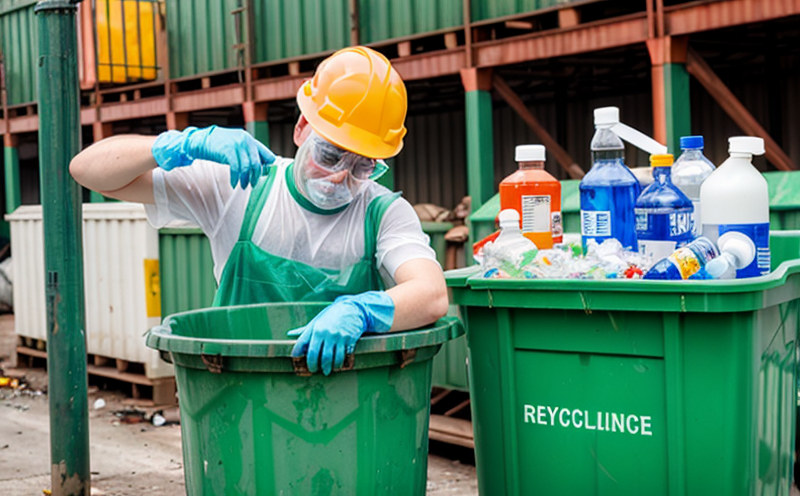ISO 14593 Biodegradability Testing of Organic Waste
The ISO 14593 series provides a comprehensive framework for assessing the biodegradability of organic materials intended for waste management and recycling processes. This service is particularly relevant for sectors dealing with waste-to-energy, composting, and sustainable resource management.
Biodegradability testing under this standard evaluates how efficiently an organic material can be broken down by microorganisms in a controlled environment. The test is designed to determine whether the tested material will decompose into harmless products within defined timeframes and conditions, thus minimizing environmental impact. This service is crucial for industries aiming to comply with stringent regulatory standards and promote sustainable practices.
For waste management companies, understanding biodegradability helps in optimizing recycling processes and reducing landfill use. In the context of organic waste handling, this test ensures that materials can be safely returned to nature without harmful effects. Compliance officers can leverage these insights for regulatory adherence while R&D engineers benefit from precise data on material performance.
The process involves several key steps: specimen preparation, incubation in a controlled environment, observation and measurement of biodegradation rates, and analysis of the resulting products. The test is conducted over specific time intervals to ensure accurate results according to ISO 14593 guidelines.
Our laboratory uses advanced analytical instruments such as Gas Chromatography-Mass Spectrometry (GC-MS) and Infrared Spectroscopy to monitor biodegradation progress. These tools provide detailed insights into the chemical composition of decomposing materials, helping us meet stringent ISO standards.
The results are reported in clear, actionable formats that include breakdown rates, final products, and compliance status with relevant international norms such as ISO 14593-2. This allows our clients to make informed decisions about waste management strategies and material selection.
Achieving biodegradability certification under ISO 14593 not only enhances a company’s reputation but also opens up new markets for sustainable products. By ensuring compliance with these stringent standards, we contribute significantly to environmental sustainability efforts.
Quality and Reliability Assurance
- Strict Compliance: Our laboratory adheres strictly to ISO 14593 protocols for biodegradability testing. This ensures that all tests are conducted under controlled conditions, leading to reliable results.
- Advanced Instruments: Utilizing state-of-the-art equipment like GC-MS and Infrared Spectroscopy guarantees accurate measurements of biodegradation processes.
- Trained Professionals: Our team comprises highly qualified experts with extensive experience in waste management and chemical testing. They ensure each test adheres to the highest standards.
- Rigorous Review: All results undergo multiple layers of review before final reports are generated, ensuring accuracy and consistency.
International Acceptance and Recognition
The ISO 14593 series has gained widespread acceptance across various countries and industries. It is recognized by regulatory bodies worldwide as a benchmark for measuring biodegradability in organic waste materials.
Many governments, including those of the European Union, United States, and China, have adopted or referenced these standards in their environmental policies. Compliance with ISO 14593 can significantly enhance a company’s standing on international markets, where sustainability is increasingly valued.
The standard also facilitates trade between countries by providing a common framework for assessing biodegradability. This reduces barriers to entry and encourages innovation in sustainable waste management practices globally.
Use Cases and Application Examples
Composting Industry: Ensuring that organic materials used in composting processes meet ISO 14593 biodegradability criteria helps improve the quality of end products. This leads to better soil health and reduced dependency on synthetic fertilizers.
R&D Engineers: By testing new waste management technologies, R&D teams can refine their designs based on real-world performance data provided by ISO 14593 tests.
Waste-to-Energy Plants: Evaluating biodegradability of materials before incineration helps optimize energy recovery processes and minimize emissions. This aligns with broader sustainability goals within the industry.
Regulatory Compliance: For companies operating under stringent environmental regulations, ISO 14593 compliance provides a pathway to meet legal requirements while demonstrating commitment to environmental stewardship.





